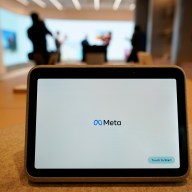Among all the music, films and business deals currently going on at this year’s South By Southwest conference in Austin, Texas, are more than 50 presentations related to the cellphone. From mobile design and advances in coding to how NASA uses mobile technology, every minor facet of the business seems to be covered.
Naturally, a number of talks, most of which happened this past weekend, centre around how mobile tech is changing the music industry. “How Pandora Navigated the Smartphone Seas” discussed how the popular streaming music service adapted to BlackBerrys and iPhones, while “How to Access The Chinese Music Market” focused on how artists can take advantage of that country’s 700 million cellphone users. But no matter how many experts wax poetic on the future of mobile innovation, one thing’s certain — the smartphone is the biggest thing to hit the music industry since the MP3.
The music biz took to the cellphone industry early — ringtones put buckets of cash into the pockets of labels, and mobile music is a big reason, according to the International Federation of the Phonographic Industry, which estimates that 27 per cent of the music industry’s global revenues came from digital sources.
But mobile music is still in its infancy. Labels are still trying to get a handle on the digital shift, which means they’ll (hopefully) be willing to try anything to boost revenues, including introducing innovative apps and services to cellphone users.
One product that critics claim could dramatically alter the music industry is Spotify, a streaming music site that’s only available in a few European countries right now. Like its desktop counterpart, the iPhone app lets users stream (online and offline) more than 3.8 million songs wherever they go. Imagine having access to the entire iTunes catalogue for about ten bucks a month on your phone (or free on the CPU version), and you can understand why some people think this product — and the mobile version specifically — will revolutionize the music business.
It’s not just music consuming programs that are shaping the way we interact with our phones; a growing number of artists are reaching out to fans via mobile apps. Death Cab For Cutie’s app lists concert dates, lyrics, artwork and YouTube videos, while T-Pain’s program famously included an auto-tune function that let his followers alter their voice like the rapper did on his most recent record.
While T-Pain’s app didn’t let you record your voice, others do. In fact, you can record entire songs on a number of mobile four-track apps such as FourTrack and GigBaby.
The future of mobile is yet to be written, but imagine downloading songs from a concert a few minutes after they’re played, remixing tracks on your phone at a party, or even contributing vocals to your favourite artist’s album while you’re at work. Whether you like it or not, the music industry is changing in ways that most of us can’t even imagine.
There’s only one thing that will slow down the mobile music experience — forgetting to recharge your phone.
Bryan Borzykowski is a business and entertainment writer. Follow Metro Music on Twitter @TheMetroMusic
















